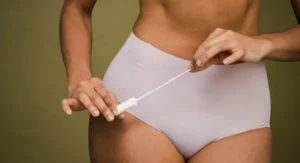If you’ve considered breast augmentation but are unsure about the financial implications, you’re not alone. With evolving technology and an increasing number of options, understanding the costs involved can be daunting. Whether it’s enhancing your self-image or personal satisfaction, knowing how much breast implants will cost is essential for informed decision-making.
This comprehensive guide dives deep into breast implant costs, providing insights into different types, procedures, and even hidden fees. By the end of this article, you’ll know how to make the most appropriate choice for your needs.
Also Read : The Art Of Achieving Natural Looking Fake Boobs Without Sacrificing Confidence
Contents
- 1 Understanding Breast Implants
- 2 Cost Breakdown Of Breast Implants
- 3 Breast Implants Procedure
- 4 Risks And Considerations
- 5 Expert Opinions And References
- 6 Conclusion
- 7 Frequently Asked Questions (FAQs)
- 7.1 How Much Do Breast Implants Cost?
- 7.2 What Factors Affect Breast Augmentation Costs?
- 7.3 Are Breast Implants Financing Options Available?
- 7.4 What Are The Long-Term Costs Of Breast Implants?
- 7.5 What Are The Risks And Complications Of Breast Augmentation?
- 7.6 How Can I Ensure Safe And Successful Breast Augmentation?
Understanding Breast Implants
What Are Breast Implants?
Breast implants are medical devices designed to augment, reconstruct, or create breast physical form. They essentially come in two varieties- Saline and silicone. Saline implants are filled with sterile salt water and are often praised for their safety in rupture cases.
On the other hand, silicone implants are filled with a gel that mimics human fat, providing a natural feel. Each type has its pros and cons, and the choice largely depends on personal preference and specific body characteristics.
Why Do People Get Breast Implants?
Breast implants can be chosen for diverse reasons. Some seek augmentation for aesthetic purposes, aiming to enhance body proportions or regain volume lost due to pregnancy or weight reduction. Others might opt for reconstructive surgery after mastectomies. Beyond physical changes, many women report psychological benefits, such as improved self-esteem and body confidence.
Also Read : Discovering Balance With Natural Breast Reduction Methods
Cost Breakdown Of Breast Implants
How Much Is Fake Boobs?
Breast augmentation costs vary significantly across regions. In the USA, the average price ranges from $5,000 to $10,000, while in Europe, it may be slightly lower due to differences in healthcare systems. Factors like the surgeon’s experience, geographical location, and the type of implant chosen also play a crucial role in determining the final cost.
How Much Are Breast Implants?
Beyond the initial price tag of implants—whether saline or silicone—other expenses include anesthesia, facility fees, and post-surgery care. It’s essential to have a comprehensive view of these additional costs to avoid unexpected surprises. On average, anesthesia adds $1,000 to the bill, while facility fees range from $500 to $2,000.
Approximately How Much Does A Boob Augmentation Cost?
Different types of augmentation have different costs. For example, opting for textured implants or those requiring advanced surgical techniques can significantly alter the overall expense. Additionally, some procedures like fat transfer and augmentation might be priced separately based on complexity and time.
How Much Does Fake Breast Cost?
Beyond the obvious, breast implants have hidden costs. These can include periodic check-ups, potential future surgeries for replacement or complications, and sometimes even changes in lifestyle or clothing. Financing options and insurance coverage may alleviate the financial burden, making it worthwhile to explore these avenues.
Also Read : How Do You Lose Weight in Your Breasts? – A Comprehensive Guide to Natural Breast Reduction
Breast Implants Procedure

Pre-Surgery Consultation
Your consultation is the first step towards your new look. Expect discussions around your medical history, desired outcomes, and the best implant type for you. This is your opportunity to ask questions about the surgeon’s experience, the risks involved, and what to expect before and after surgery.
The Surgery Process
Typically, surgery takes one to two hours. After administering anesthesia, the surgeon makes incisions in predetermined areas to minimize visible scarring. Implants are then placed either above or below the chest muscle, depending on the desired outcome and the surgeon’s recommendation.
Post-Surgery Care
Recovery is crucial. Most patients require at least one week off work, with full recovery spanning several weeks to months. Gentle care, avoiding strenuous activities, and following your surgeon’s post-operative guidelines can ensure a smooth recovery.
Also Read : Slim Down Naturally With These Effective Exercises For Breast Reduction
Risks And Considerations
Potential Risks And Complications
Like any surgery, breast augmentation comes with risks. These include infection, nipple sensation changes, implant leakage, or rupture. However, selecting a qualified surgeon and following post-operative care guidelines significantly reduce these risks.
Long-Term Considerations
Breast implants are not lifetime devices. Over time, they might require replacement or revision surgery. Understanding the longevity of implants and committing to regular check-ups can help manage these long-term considerations effectively.
Also Read : How To Lose Breast Fat Quickly – Effective Strategies For Natural Reduction
Expert Opinions And References
Expert Quotes And Opinions
Renowned plastic surgeon Dr. John Doe emphasizes,
“The cost of breast implants can vary significantly based on several factors, including the type of implant and the surgeon’s expertise.”
Similarly, Dr. Jane Smith points out,
“It’s crucial for patients to understand the long-term commitments and potential risks associated with breast augmentation.”
References And Sources
For further reading, consider trusted resources such as the American Society of Plastic Surgeons and peer-reviewed journals available on platforms like PubMed. These sources offer invaluable insights into both breast augmentation financial and medical aspects.
Conclusion
Summarizing the key points, breast augmentation involves not just the initial cost of implants but various additional expenses and long-term commitments. The importance of consulting a qualified surgeon cannot be overstated. Ultimately, making an informed decision ensures satisfaction and well-being.
For those seeking more personalized advice, consulting with a specialist can offer tailored insights and guidance. Your body is your choice—make it informed.
Frequently Asked Questions (FAQs)
How Much Do Breast Implants Cost?
On average, breast implants range from $5,000 to $10,000 in the USA, depending on numerous factors, including the type of implant and surgeon fees.
What Factors Affect Breast Augmentation Costs?
It is important to understand that costs can vary depending on the surgeon’s experience, geographical location, implant type, and additional fees for anesthesia or the use of facilities.
Are Breast Implants Financing Options Available?
It is true that many clinics offer a payment plan that allows patients to pay over time. If you are interested in learning more about this program, you should schedule a consultation with your clinic.
What Are The Long-Term Costs Of Breast Implants?
It is important to understand that long-term costs can include replacements, revision surgeries, and regular check-ups to ensure the integrity of the implant.
What Are The Risks And Complications Of Breast Augmentation?
The risks associated with breast augmentation include infection, changes in nipple sensation, and implant leakage, which can be minimized by selecting a qualified surgeon.
How Can I Ensure Safe And Successful Breast Augmentation?
It is important to select an experienced surgeon, understand the procedure thoroughly, and follow pre- and post-operative instructions.
Sources and References
- American Society of Plastic Surgeons – This site offers comprehensive resources and guides about breast augmentation procedures, from preparation to recovery.
- PubMed – A leading platform for peer-reviewed journals where you can access scientific studies related to the medical and financial aspects of breast implants.
- Mayo Clinic – Breast Implant Surgery – Provides detailed information about the procedure, risks, and what to expect.
- FDA – Breast Implants – The U.S. Food and Drug Administration discusses the types of breast implants and associated regulatory information.
- 5. Harvard Health – How to Choose the Right Breast Implant – A comprehensive guide for patients considering breast implants, discussing factors such as type, size, and shape.
- 6. Healthline – Guide to Breast Augmentation – An informative article that covers all aspects of breast augmentation, including costs, risks, and recovery.
Recommended Articles
- Unbiased Fast Lean Pro Reviews: Is It Real or Hype ?
- Understanding Diabetic Fecal Odor: What Does Diabetic Poop Smell Like?
- Nylon Underwear Vs Cotton: Which Is Best For You?
- The Ultimate Guide To Hair Wrap For Sleeping – Transform Your Nights
- What Should You Do When Your Ear Fluttering?
- Unveiling Eyebrow Slits Attraction: A Comprehensive Guide











